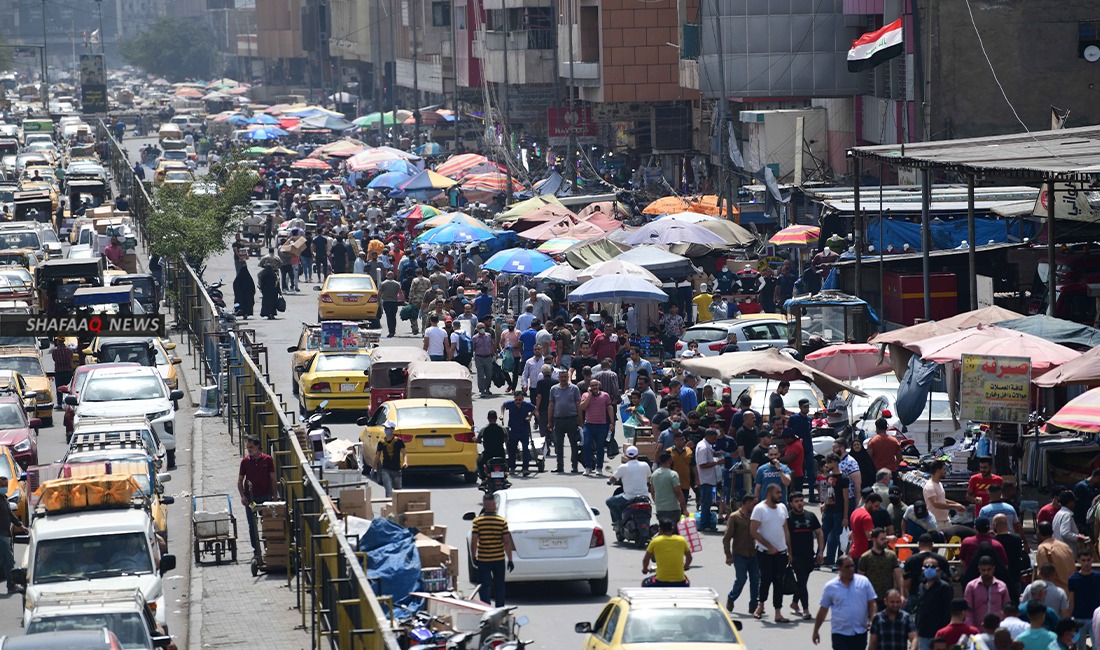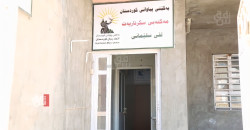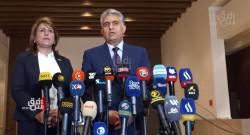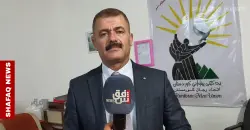Iraq unrest fuels spike in domestic violence cases

Shafaq News/ (the independent) Successive political and economic crises that have plagued Iraq since 2019 appear to be causing an unprecedented surge in domestic violence, the like of which the country hasn’t seen in decades.
The biggest problem seem, however, lies in the inability of Iraq’s institutions to properly deal with such cases in concrete ways and not just by peddling slogans or arranging seminars.
Despite efforts by international organisations to support the Iraqi government in finding solutions and drafting laws that would address problems, any project aimed at tackling the issue has been unable to overcome political opposition.
The influence tribal leaders and clerics wield in Iraqi society has also made it difficult for security services, who must deal with the end result of domestic violence. Iraqis follow stories daily on the news and via social media of domestic violence-related murders.
Iraqi courts recorded thousands of domestic violence cases in 2019, with Baghdad ranking highest in terms of cases.
According to Ahmed Al-Kinani, a member of the Human Rights Committee in the Iraqi Parliament, around 16,861 cases of domestic violence were recorded in Iraqi courts in 2019, indicating that this is a huge increase; however, some cases were not registered in courts for various reasons
Al-Kinani added: “Domestic violence cases reached 12,336, with Baghdad recording the highest number at 4,661 cases”.
The Human Rights Commission in Iraq has highlighted new developments in this issue, including cases of men being killed by their partners, with the areas of Al-Rusafa, one of the old quarters of Baghdad, and the province of Kurdistan in northern Iraq seeing the highest number of such cases.
Anas Al-Izzawi, the spokesperson for the Human Rights Commission, told Independent Arabia: “Between May and June, we have recorded an increase in cases of domestic violence against women and children in the first instance, and to a lesser extent violence perpetrated against men by women” and that this was a result of economic hardship, and difficult living conditions.
He added: “Civil rights organisations in Kurdistan recorded more cases of violence against men compared to other areas. This is owing to the presence of groups interested in this matter, some of which record cases in refugee camps, where the issue is more prevalent than in other Iraqi governorates.
The area of Al-Rusafa in Baghdad recorded similar numbers, which are due to over-population, low levels of education and income, excluding the areas which have been liberated from ISIS control.”
Despite the need for legislation on domestic violence, which has been discussed for a long time in Iraqi parliament, those who have worked in this field are calling on all executive bodies to recognise the need for enacting this law without any objections.
According to Bushra Al-Zawini, former minister for women’s affairs, the increase in cases of domestic violence is due to the political, economic and security issues facing the country, as well as living in extended families and child marriage, pointing to how children are the most vulnerable to domestic abuse followed by women
It is possible that legislation on domestic violence, which the Iraq’s then-prime minister presented in 2010, could reduce the number of cases. Amendments which have been made to the original draft, for Al-Zawini reflect “the need for amending parts of it which frighten opponents, for instance the possibility of reporting cases to any individual working in the community sector which opens the possibility of false claims”.
The draft legislation was met with much opposition, with several political parties rejecting it, particularly Shiite parties, which considered it a “threat” to society.
Intesar Al-Jaboori, the vice chair of the family and children’s committee in the Iraqi parliament, spoke of the many objections against this law, from various political groups, which have prevented the bill from being sent to various committees for discussion and approval.
Ms Al-Jaboori added: “The law reached the parliament last August, however it still hasn’t reached the women’s committee because of these objections”.
Objections were focused on the fact that there is no need for such a bill, that the Iraqi Penal Code already criminalises beating and abuse, or that this law would place women in a position of superiority over their husbands and brothers.
Al-Jaboori points to the possibility of amending much of the bill. For instance, proposed shelters could be under the oversight of the Ministry of Labour and Social Affairs. She suggests that the committee is putting pressure through civil rights groups and the United Nations to present the bill to the Women’s Committee and amend it.
Despite the government announcing the number of cases of domestic violence, experts and analysts believe that the true figure is double that which has been announced.
“Domestic violence is a hidden crime that often goes unreported”, says Bushra Al-Obaidi, a women’s rights activist and former member of the Human Rights Commission.
"Enacting a law is one solution, even if it is not going to resolve the problem. It does at least protect the victim and deter the offender," she added, indicating that it is important to enforce legislation properly and to educate rather than mislead society. And, she states, it is religious parties who are standing in the way.


